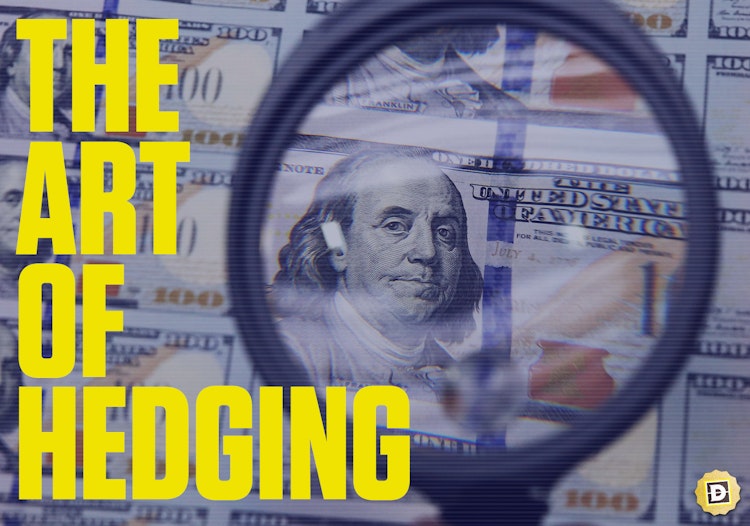The Art of Hedging: a Skill All Great Sports Bettors Must Know

It's the elephant in the room for all sports bettors...when should you hedge? Hedging often has a negative connotation, but responsible bettors know when to use it as a strategy and when to let their tickets ride. Here's how to do it successfully.
MORE: See more NBA Offseason News
What is hedging?
Hedging a bet is a strategy that has become more commonplace in recent years for sports bettors. The goal is essentially to secure a profit, albeit a smaller one than originally targeted, by eliminating the outcome of a loss through betting two sides of a contest.
In the process, the bettor wagers against the original bet they placed while the outcome is still up in the air. Even though a bettor may think the original wager could win, they choose to bet the opposite side, ensuring that they will win something no matter what happens.
It acts as a sense of insurance, and is rarely ever a "bad" move, as long as you choose the right situations to employ the strategy.
How to hedge a bet
Hedging a bet is not overly difficult. But it also isn't a bettor's first priority when placing bets. Bettors need to be smart and willing to adapt to employ the strategy successfully.
Here's an example of a successful hedge:
- A bettor places a $100 bet on the Astros to win the World Series at +1000 odds to win $1000
- In October, the Astros face the Phillies for the World Series. Before the series begins, the bettor places a $300 bet on the Phillies to win the series at +120 odds to win $360
- If the Astros win the series, the bettor now wins $700
- If the Phillies win the series, the bettor now wins $260
While the potential winnings take a small hit, hedging the bet allowed the bettor to guarantee a profit and completely eliminate the risk of losing money.
When is a good time to hedge?
One of the most important elements of hedging a bet is knowing the right time to bet. It is much more difficult (and often a mistake) to pay premium lines of -300 and upward just for the sake of "hedging". Here are three good times to hedge:
1) Hedging a Futures Bet
Like the World Series example above, if a bettor has a Futures bet on a team to win a championship, once it comes down to two teams, the bettor could hedge by placing a moneyline bet on the opponent. It's always best if the moneyline odds are close to +100 or above, although -120 to -150 is often not a bad move either, depending on what the plus-money odds were of the initial Futures bet.
Bettors should be careful not to hedge a Futures bet too early. For example, if there were four teams remaining and you only tried to hedge one of them, there would still be 50% of the teams in play that would not result in a winning wager.
2) Live Betting to Hedge
Another great time to hedge is a live bet. For example, if you bet $100 on the Oakland A's to beat the Seattle Mariners on the moneyline at +230 odds, and the A's jumped out to a 2-0 lead, you may have the opportunity to hedge your bet by placing a wager on the live line on the Mariners to come back and win the game. This requires attentiveness and choosing the right moment to capitalize, as live lines change quickly and one play can swing the outcome of a game.
3) Hedging a Parlay
The last example of a great time to hedge a bet is when you have a parlay that has life. For example, if a bettor placed a four-leg MLB moneyline parlay, and the first three legs of the bet hit before the last game began, the bettor could place a wager on the opponent in the final game and guarantee a profit.
Or...sometimes you don't need to hedge at all, like this bettor who jokingly asked "should I hedge" with his winning ticket relying on the Angels (who were up 24-0).
Should I hedge ? pic.twitter.com/omSJiwT4yV
— Octobersveryown ♏️ (@gc_god2) June 25, 2023
Have questons of how to hedge? Ask us on Twitter!
Remember to gamble responsibly and set limits on your betting activities. Set a budget for yourself and stick to it, and never bet more than you can afford to lose. If you or someone you know has a gambling problem, crisis counseling and referral services can be accessed by calling 1-800-GAMBLER.
